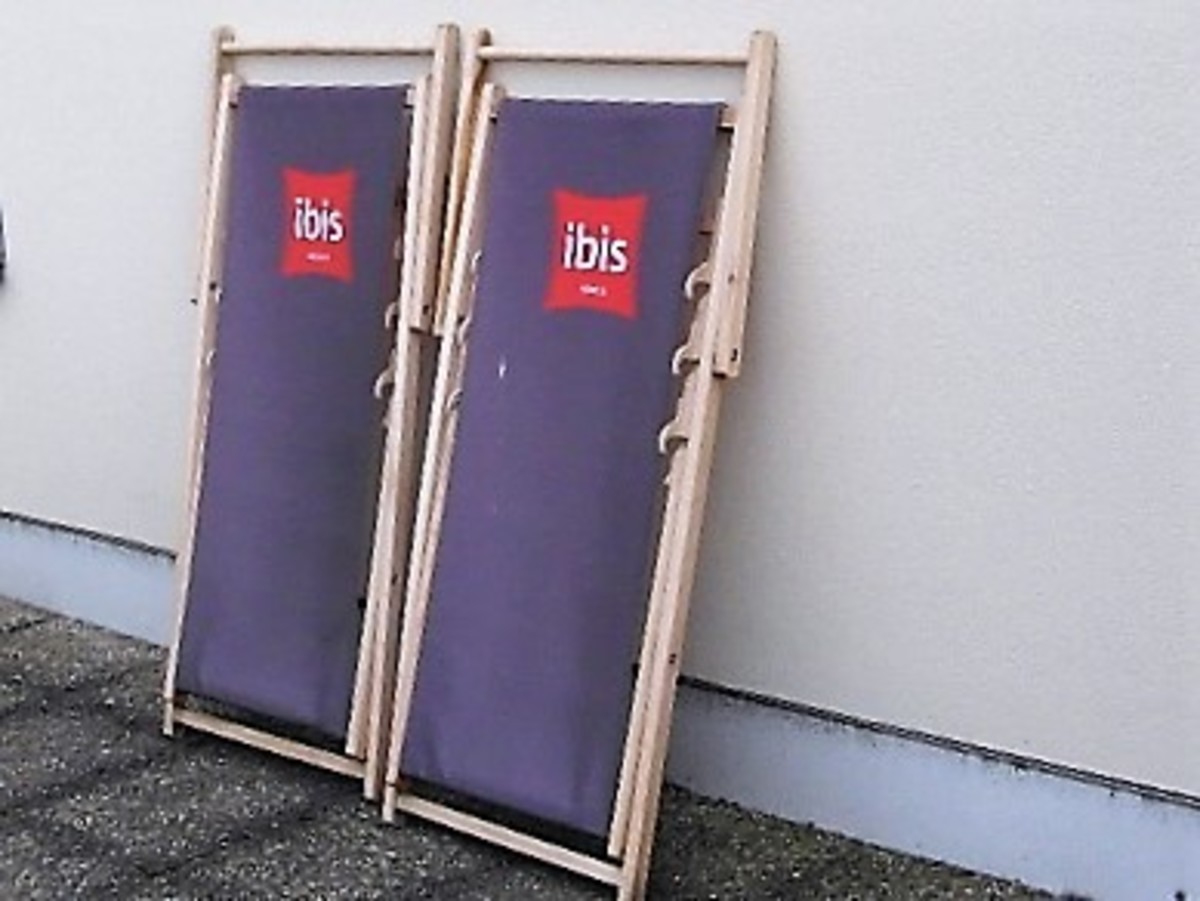Save Money on Hotels Using Priceline or Hotwire

To save the most money on hotels, use an opaque shopping site like Priceline or Hotwire. Opaque shopping sites allow travelers to buy unsold inventory at deeply discounted prices. These sites are called “opaque” because the traveler does not find out the specific supplier or purchased product until after the purchase is completed. Opaque shopping is often a win-win for the travel supplier and traveler: the supplier sells inventory that would otherwise go unused (e.g., an airline seat or hotel room that would otherwise earn no revenue) without hurting its full-price retail sales channel; and the traveler saves a substantial amount of money.
For example, Mr. Smith wants to visit his son at the University of Pittsburgh. He needs a good hotel room near campus from April 7th - 8th. Meanwhile, the Holiday Inn on Pitt’s campus expects to have 10 empty rooms that it’s advertising for $150. Mr. Smith uses an opaque travel shopping site to purchase his hotel room for the deeply discounted price of $75. Only after the purchase is complete does the opaque shopping site inform Mr. Smith that he purchased his hotel room at the Holiday Inn on Pitt’s campus. It’s a good deal for Mr. Smith because he saved 50% from the published rate. It’s also a good deal for Holiday Inn because it sold a room that would otherwise have gone empty for $75 without cannibalizing its full-price retail sales and lowering the amount its other customers are paying.
So is Mr. Smith happy with his purchase? He’s most likely thrilled because he saved $75 (50% off the advertised rate). But perhaps he’s not. I have used opaque shopping sites like Priceline and Hotwire on numerous occasions for the last 12 years for numerous purchases. I have saved literally thousands of dollars over that time compared to the best published prices. That said, there were occasions where I had a negative experience, or ended up paying more than I initially expected. Here are lessons learned from my experiences purchasing hotel rooms using these generally-useful opaque shopping sites.
Hotels
Let’s assume Mr. Smith used Priceline to purchase his opaque hotel room. (He could also have used the other dominant opaque travel site—Hotwire--or another opaque site such as Site59, or an option for making opaque travel purchases with a traditional online vendor such as Travelocity or Expedia.)
Mr. Smith entered the city where he needed a hotel room (Pittsburgh), his check-in and check-out dates (April 7th and 8th), and the number of hotel rooms (1). The Priceline site then provided him with a list of Pittsburgh-area hotels and their prices for the night of April 7th. This list gave Mr. Smith a general idea of the Pittsburgh hotel market for that night. The Priceline site also invited Mr. Smith to try bidding for a hotel room for that night by clicking a “Name Your Own Price” link. After clicking on this link, Mr. Smith was asked to select from any or all of 11 areas in Pittsburgh in which he’d like to stay. In this example, Mr. Smith selected the “University Center” area since it encompasses the Pitt campus. The Priceline site also asked Mr. Smith to select the star level for his hotel, and his bid. In this example, he selected a “3-Star Upscale” hotel and a bid of $75. Priceline then provided a confirmation screen with the total charge including taxes and service fees of $93. Mr. Smith then submitted his bid. It was only at this point that Priceline accepted Mr. Smith’s bid and notified him that he’d be staying at the Holiday Inn.
The process would have been similar had Mr. Smith used Hotwire to make his opaque purchase. The major difference is that Hotwire would have simply informed Mr. Smith of the purchase price of each unnamed hotel with its star level in different areas in Pittsburgh without revealing the hotel’s name, and Mr. Smith would not have needed to enter a bid. Hotwire would then have informed Mr. Smith of the hotel’s name and its address after he entered his agreement to purchase the hotel at the stated price.
In the best case, Mr. Smith was thrilled with his purchase even after learning the identity and address of his hotel. After all, he saved a full 50% from its published retail rate. He may also be staying at a higher-quality hotel than he otherwise would have stayed in. However, there are some potential problems that may have caused Mr. Smith to be less than fully satisfied:
1. Inconvenient Location. The biggest potential problem is that Mr. Smith might not be happy with the specific location of the hotel. While opaque sites like Priceline and Hotwire allow users to select the area(s) in the city where they’d like to stay, that area(s) can be too large--especially if the traveler wants to walk to and from his hotel to other places. For example, if Mr. Smith ended up in a hotel located 2 miles from Pitt’s campus but still in the “University Center” area he selected, he may not be able to walk to see his son. It’s also possible the hotel might be adjacent to a freeway, parking lot, noisy nightclub or other undesirable neighbor, though the star level of the hotel may help avoid such problems. In deciding whether to use an opaque site, the traveler should consider the importance of the specific hotel location to the particular activities the traveler is planning on doing during his stay.
The risk of an purchasing a hotel in an inconvenient location rises if the bidder uses a certain trick to get around Priceline's rule requiring bidders to wait at least 24 hours before submitting identical bids. Say that a bidder is interested in staying in area A of a certain city. He submits a bid of $75 per night for a 3-star hotel in area A, but his bid is rejected. Normally, Priceline would require the bidder to wait at least 24 hours before resubmitting his bid. To avoid this rule, the bidder can add area B to his search by submitting a bid of $76 per night for a 3-star hotel in either area A or area B. Priceline will process the bid since its not identical to the first bid. However, since the bidder has now included area B, Priceline might well accept the bid for a hotel in area B. This hotel might be less convenient for the bidder. While this risk is somewhat obvious, the bidder can minimize it by making sure that he adds area B to his bid only if the average hotel price in area B is higher than in area A. By doing this, he is able to essentially repeat his bid for a hotel in area A without needing to wait for at least 24 hours.
2. High Taxes & Fees. As with all travel, taxes can substantially boost the total purchase price. In addition, opaque sites often have higher fees than those charged by more traditional sites. For example, Mr. Smith may not have fully appreciated how much his total charge of $93 exceeded his actual bid of $75 due to the additional taxes and fees. This may be because he was distracted by figuring out how much to bid for his hotel, and also because the site did not separately break out the extra $18 to see how much of it was being used to pay taxes and how much of it was being used to pay an additional fee to Priceline.
3. Parking/Resort Fees. Another potential problem is that opaque sites do not inform the traveler if the hotel will charge a parking fee, resort fee or any other fee. The traveler will need to pay these fees in addition to the cost of the room, and they may be substantial. For example, Mr. Smith may find he needs to pay $20 to park his car for the night, which is more than 25% of his room’s cost. For another example, Mr. Smith might find he needs to pay a $25 per day resort fee to use a hotel's pool or other amenities, even if he has no intention of using these amenities. The use and amount of fees tends to be counter-intuitive, with more upscale hotels tending to charge more fees in higher amounts than less upscale hotels.
The only ways to avoid mandatory parking fees is to not have a car to park, or to park in a nearby location. As for resort fees, some hotels are willing to waive them upon the traveler's request, so don't be afraid to ask if you are not planning to use the amenities during your stay.
4. No Frequent Stay Points. Travelers do not earn frequent stay points when they use opaque sites. Logically, this makes sense since frequent stay points are a tool designed to promote loyalty to a particular hotel company, which goes against the definition of opaque shopping. Mr. Smith, for example, will not earn any frequent stay points even if he belongs to Holiday Inn’s Priority Club program. The cost of not earning frequent stay points can be evaluated by assigning a monetary value to the points, such as 1 cent per point.
5. Poorly-Rated Hotels. Since opaque shopping sites hide the identity of the hotel until after the purchase is complete, it’s impossible to avoid hotels with poor on-line reviews. For example, Mr. Smith may find he’s staying at a hotel that previous customers have panned in on-line reviews on tripadvisor.com or other review sites. However, in the long run, it’s likely that the star level of the hotel that Mr. Smith buys will accurately reflect that hotel’s quality.
6. No Cancellations or Itinerary Changes. Purchases made through opaque shopping sites are generally final, and it is not possible to cancel your hotel room purchases. So, even if Mr. Smith is happy with his purchase initially, he may become less than satisfied if he should need to cancel his trip, or change his Pittsburgh visit to the following week. This issue is best addressed by thinking about it in terms of travel costs over a long period of time. If you’re able to save $3000 by using an opaque shopping site over 10 years, you’re still ahead way even if a change in travel requirements causes you to lose the price of one room stay.
7. Small or Poorly-Located Room. Opaque travel sites do not allow a traveler to select the particular room. At most, they only guarantee that the room will be large enough for two. Thus, if Mr. Smith brings along his wife and two other children, they may find there isn’t enough room for everyone to sleep. Or, if Mr. Smith wants a room on the 5th floor or higher to avoid road noise, he may be unhappy to find that his room is on the 3rd floor.
To decide whether to use an opaque site to buy a hotel room, you need to decide if its potential costs outweigh its potential benefits. For costs, think about how you value the potential problems discussed above. For example, how important are the hotel’s specific location or amenities, or will you need a particular size room to accommodate your party? To determine the benefits, first use a traditional travel site or the non-opaque information provided by Priceline or Hotwire to find the cost of a regular (non-opaque) hotel room. Then, decide how much of a discount you’d demand to accept the potential costs of buying an opaque room. For example, if Mr. Smith finds the normal cost of a 3-star hotel in the area near Pitt’s campus is $150, but he’d be willing to accept the costs of using Priceline’s opaque service in exchange for a $75 discount, he could try entering a $75 bid on Priceline’s site. If it’s accepted, he’ll likely be happy he bought his room this way. If it’s rejected, he’d likely be better off buying his room using a traditional travel vendor rather than raising the price of his bid.
The cheapest way to buy a hotel room is to use an opaque shopping site such as Priceline or Hotwire. These sites have made it possible for my family and I to make many trips we otherwise couldn't have afforded, and stay in hotels of higher quality than we normally use. On several trips, we used these sites to buy 4-star hotels for the published price of 2-star hotels. Another benefit to using these sites is they can make the hotel shopping experience less stressful by eliminating the need to decide exactly which hotel to choose. Using these sites also creates an exciting Monte Carlo buzz as you anticipate seeing which specific hotel you've actually bought. But you need to decide if you’re willing to accept the tradeoffs listed above in exchange for your substantial savings.
Save on Airline Tickets:
- Buy Your Airline Tickets Using Priceline or Hotwire to Save 50% or More!
The cheapest way to buy an airline ticket is to use an opaque shopping site such as Priceline or Hotwire. Here are tips for making your purchase without regret.








